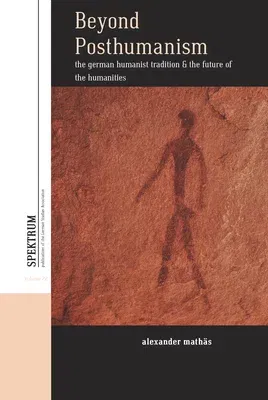Alexander Mathäs
(Author)Beyond Posthumanism: The German Humanist Tradition and the Future of the HumanitiesHardcover, 3 February 2020

Qty
1
Turbo
Ships in 2 - 3 days
In Stock
Free Delivery
Cash on Delivery
15 Days
Free Returns
Secure Checkout

Part of Series
Spektrum: Publications of the German Studies Association
Part of Series
Spektrum: Publications of the German Studies Association, 22
Print Length
314 pages
Language
English
Publisher
Berghahn Books
Date Published
3 Feb 2020
ISBN-10
1789205638
ISBN-13
9781789205633
Description
Product Details
Author:
Book Format:
Hardcover
Country of Origin:
US
Date Published:
3 February 2020
Dimensions:
22.91 x
15.19 x
1.91 cm
Genre:
Germany
ISBN-10:
1789205638
ISBN-13:
9781789205633
Language:
English
Location:
New York, NY
Pages:
314
Publisher:
Series:
Weight:
589.67 gm